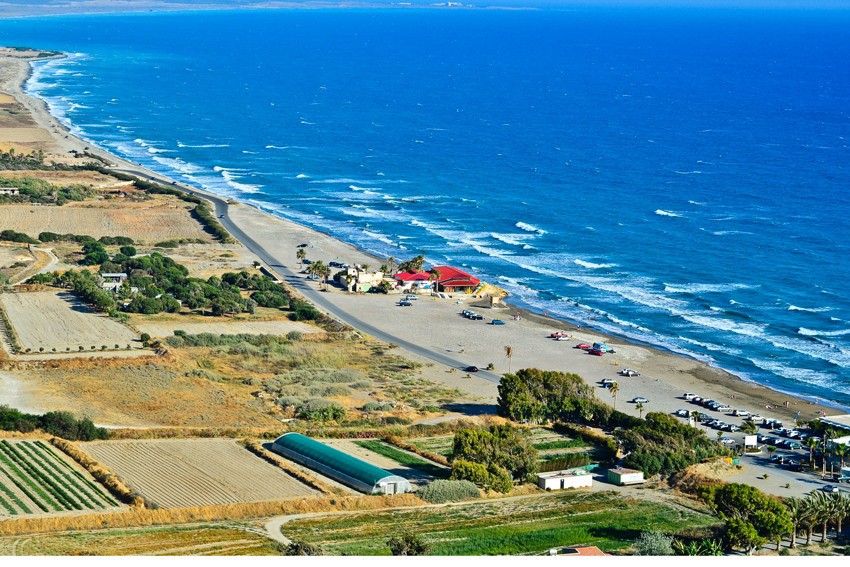Letter from Cyprus: The Euro and Germany

It’s often said that if Cyprus were re-united, the locals would have nothing left to discuss. They’d just sit in cafes with their “Cypriot” coffee staring into space.
It’s often said that if Cyprus were re-united, the locals would have nothing left to discuss. They’d just sit in cafes with their “Cypriot” coffee staring into space. Well, things have changed. Cypriots are onto a new topic; the economy. Cyprus depends for its livelihood on two sources of wealth – tourism, predominantly from the UK and Russia, and finance. Something like $15 billion worth of Russian capital is invested in Cyprus which has a corporate tax rate of just 10 percent. But Cyprus is also in the euro and every Cypriot is staring aghast at the crisis in euroland. Cyprus didn’t cause it; historically, Cyprus has run pretty conservative fiscal policies. But what people in Cyprus have woken up to is that if you’re in the euro, you’re all in it together. All 17 members have to work out how to dig themselves out of the debt hole. The euro economies have stark choices. The debtor countries can massively cut spending and plunge their economies into a deep recession. The GDP of Greece has plunged by about 10 percent over the past 18 months. The Italians, the Irish, the Portuguese and the Spanish are being told to do more or less the same thing. You don’t need to be a political scientist to work out how unpopular this is. In each of those major debtor countries, their governments have collapsed over the last year. And who, the public ask, is making us swallow these vicious austerity packages? The answer is simple: the Germans. The great creditors of the Eurozone. The biggest economy in the EU. And, interestingly enough, the country which has gained the most from the euro. If the deutschmark was still the legal tender of Germany, its value would be much stronger than the euro, thereby making German exports more expensive. And it’s exports that have driven strong German economic growth over the past few years. There are only three alternatives to these dramatic austerity packages. First, the EU could undertake a constitutional revolution whereby all members of the Eurozone would in effect be subject to one fiscal policy. The Greeks and Italians would lose the capacity to unilaterally determine their own spending policies. This makes sense; you can’t have a single currency with 17 separate fiscal and monetary policies. The Germans like this idea. They would dominate the fiscal and monetary policies of all of the Eurozone. They wouldn’t always be called on to bail out their miscreant southern eurozone brothers. But constitutional change involving a series of referenda would be needed to make these changes. Given the scepticism about the EU on the part of voters, it’s impossible to believe the publics of Europe would vote to let Berlin determine their fiscal policies. Option two is to push the weak performers out of the euro. This would cause massive defaults and leave the German and French banks in crisis and would probably destroy the euro altogether. Option three is for the European Central Bank to buy the debt of the weak economies rather than them having to sell bonds on the open market at exorbitant rates. The Germans are refusing to allow this as it would be inflationary and mean, in effect, that Germans were bailing out the profligate southern Europeans. So where does this all lead? For the first time in a generation, it leads Europe back to the German question. The failed euro experiment, which was so favoured by the Germans, was meant to reduce the overwhelming economic power of Germany and create a more balanced Europe. It’s had the reverse effect. Only the Germans can save the euro and in doing so they will assert enormous economic and political power over the rest of the Eurozone. This is starting to cause deep resentment. The Germans killed off the Greek proposal to hold a referendum and to let the people decide on the way forward. German policy is seen by many to be responsible for the fall of democratic governments in Europe, from Greece and Italy to Portugal and Spain. Some Europeans are starting to look back in history. At a football game between a Greek and German team the other day, Greek spectators held up a banner which read “No Fourth Reich”. It wasn’t pretty but that’s where Europe is at today. The best short-term solution for the euro is to opt for option three; the Bank must buy the debt. German voters won’t like it but the alternatives will create strong anti-German sentiment. Britain isn’t in the Eurozone so it hasn’t played much of a role in all of this. But watch Britain fall in on the side of the French, the Italians and the Spanish. That’s how Europe works. No one country should ever dominate that continent. History shows that Britain always stands back from European affairs except when one country starts to dominate.